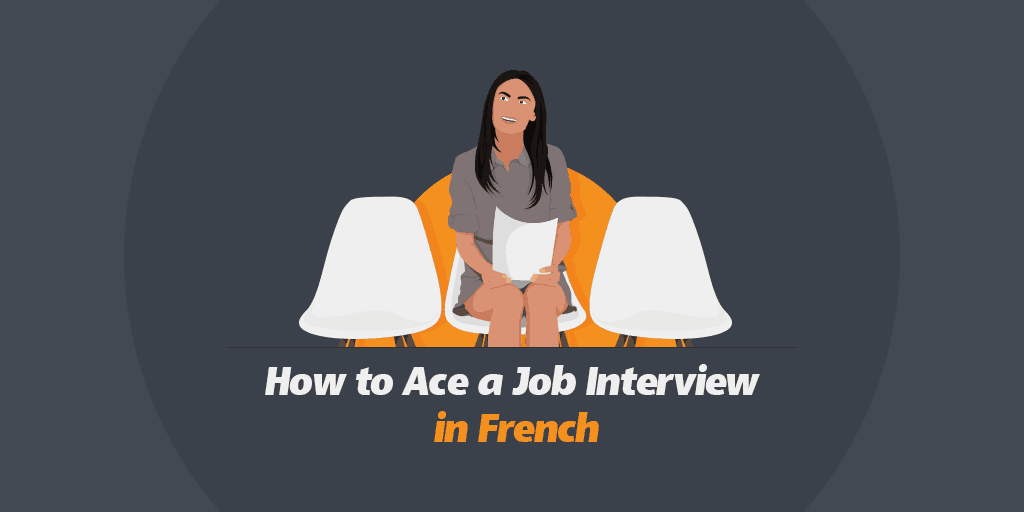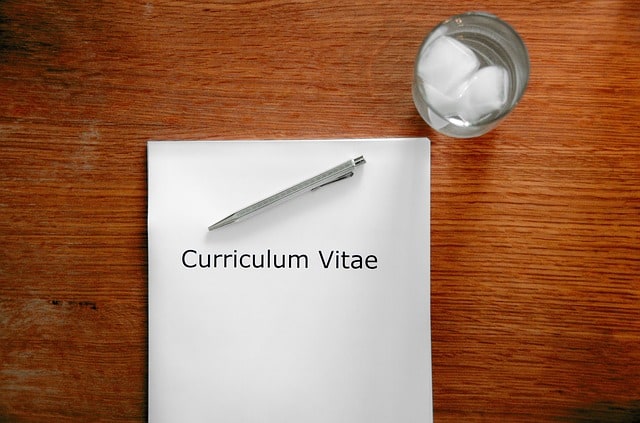No matter how many you have gone through before, a job interview is always intimidating. It is even more so when you must conduct that interview in a language different than your mother tongue---like a job interview in French, for instance.

Have no fear! These tips will help you get ready for your meeting and put all the chances on your side so that you can ace your entretien d’embauche in French!
1. Before your interview
Preparing a job interview is crucial no matter what language you are speaking, but it is even more critical if you are conducting the interview en français. Stay confident and avoid unbefitting “euuuh” and “mmmmh” by making sure you are ready to answer some of the questions that will be asked during the interview.
A. Research the company you will be interviewing with
The goal for any candidate to a job is that the company should hire him or her rather than someone else. Your first job is to make sure that the recruiter knows you are the best contender to the post because of your international background rather than despite it.
Research which aspects of your work history are the most likely to grab the attention of the recruiter and how they would benefit the company. Ensure that you know the French equivalent for your diplomas and professional experience.
Note that there is only one institution that can deliver a French certificate of equivalence to your foreign diploma: the ENIC-NARIC so if it is something that might come up, do your homework ahead of time so you can have the certificate in hand on the day of the interview.
If you are a European citizen, websites like Europass can help you present your work skills and competencies.
Each industry has its specific vocabulary. Even if your French is very fluent, it is not necessarily terms that come up into everyday conversation. Prepare yourself a cheat sheet with some keywords you need to know in French and study until they become second nature, whether they are industry-specific or business-related.
As for job interviews everywhere, the recruiter will want to make sure that you are familiar with the company. Memorize some key numbers and statistics that might come up during the interview. Any data related to your home country is a plus!
Some vocabulary articles that might help:
French Terms Related to Business and Employment

Speak, Listen, and Write French like a Native with Talk in French Complete Courses
B. Prepare your answer to some of the most common questions.
Some questions are bound to come up during the interview. Make sure you have an answer prepared for it (in French, bien sûr!). Review these French interview questions:
Parlez-moi de vous. | Tell me about yourself. |
Pourquoi pensez-vous que nous devrions vous embaucher ? | Why do you think should we hire you? |
Pourquoi voulez-vous travailler dans notre entreprise ? | Why do you want to work for our company? |
Où vous voyez-vous dans cinq ans ? | Where do you see yourself in five years? |
Quelles sont vos prétentions salariales ? | What are your expectations in terms of salary? |
Pourquoi voulez-vous quitter votre travail actuel ? | Why do you want to leave your current job? |
Avez-vous des questions? | Do you have any questions? |
Some subjects during a job interview in France are considered illegal. If asked, you do not have to answer them. Illegal topics include eight categories:
At the end of the interview, the recruiter will most likely ask you if you have any questions for him or her. Here are some good French interview questions that will help demonstrate your interest in the post:
Quand puis-je commencer ? | When can I start ? |
Comment se déroule une journée type ? | What does a typical day look like? |
Quel est le plus gros challenge auquel la personne à ce poste sera confrontée ? | What is the biggest challenge the person hired will have to face? |
Comment se passe la formation à la prise de poste ? | How would I be trained after starting the job? |
Qui sera mon maître de stage/manager, et quelles sont ses responsabilités ? | Who will be my manager, and what are his/her responsibilities? |
2. On the day of the interview
Job interviews in French tend to be more formal than what you might be used to, especially if you come from an Anglophone country. They tend to be straight to the point, focused on the job being discussed, without any chit-chat from the get-go.
A. How to address the recruiter
Although many Anglophones think nothing about addressing someone in a professional context by their first name, even if they have just met him or her, it is not the case in France. Unless invited to do otherwise, always address your recruiter as Monsieur or Madame.
To respect the rules of politeness, always use “Monsieur” or “Madame” when greeting or thanking your discussion partner:B. Appearances are everything

Image by rawpixel from Pixabay
As for job interviews everywhere, make sure that you are appropriately dressed: neutral colors like grey, navy and black are usually a good bet. Wear clean dress shoes (not sneakers) and a sports coat or blazer can give a more formal tone to your outfit.

Speak, Listen, and Write French like a Native with Talk in French Complete Courses
C. Be punctual
It is a good idea to plan on arriving 20 minutes or so before the scheduled appointment. If you are planning on using public transportations, check an alternative route in case you run into any issues. And if you are in France, it never hurts to see if a strike is scheduled on that day!
D. What to bring

Image by Tobias Herrmann from Pixabay
Some things to bring with you to the interview include:
Quick note
Please note that the French term résumé means "summary" and it is not used in the same way as English speakers do. The French refer to it as un C.V. (curriculum vitae)
3. After the interview
Once the interview is over, the hardest part is behind you. However, you are not done until you have an offer in hand.
A. Follow up with the recruiter.
It is always a good idea to follow your interview with an email to thank your recruiter within 48 hours. Keep it short, but don’t forget to include some key elements:
At the end of the job interview, don’t forget to ask the recruiter how long you should wait to hear back from them: “Si mon profil vous intéresse, d'ici combien de temps pensez-vous me recontacter pour un second entretien?” and if you should get back in touch by email or phone.
B. Prepare for a second interview
Congratulations, you got a second interview! It is time to get out those notes that you took during the first one and reinforce the idea that you are the best candidate for the job.
Expect new recruiters to sit in: it is usually a person you will be working with directly, but don’t be surprised if you must repeat some of the things you discussed during the first interview.
Assume that the questions you will be more detailed and technical, so dive in deeper in your research on the company and what the job will require.
If you made any mistakes or were unsure of your French, now is the time to brush up on your weak spots.
It's never too late to review and study for your interview in French!
See also:
French Business Etiquette: A Guide to Business Culture in France
Conclusion
Good luck on your job interview in French! If you have gone through the process before, what are the things that surprised you the most and what would be your advice to a new candidate? Share it with us in the comments section!
For more lessons like this, subscribe to the Talk in French Newsletter. You’ll also gain access to the FREE French Learning Package.
SIGN UP BELOW...
AND GET INSTANT ACCESS TO THE FREEBIES
